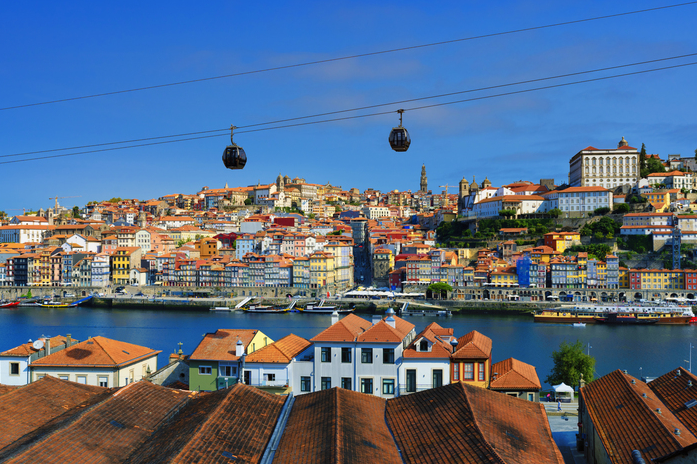The Cost and Timeline of Getting Portuguese Citizenship
- doursoniy512
- Jul 29, 2025
- 5 min read
Gaining Portuguese citizenship is a popular goal for many looking to tap into the benefits of EU residency—such as visa-free travel, high quality of life, and access to social services. While Portugal has several citizenship routes including descent, marriage, and naturalization, the most common path for foreigners is through residency and naturalization. However, the process can be complex, with multiple steps and varying costs involved. Understanding the timeline and financial commitment required is essential for effective planning.
This blog dives deep into the timeline, financial investment, and bureaucratic hurdles you’ll likely face when pursuing Portuguese citizenship. We’ll break it down into seven core sections, covering residency requirements, naturalization steps, legal fees, documentation, timelines, additional costs, and tips for a smooth process. By the end, you should have a clear picture of what it really takes to become a Portuguese citizen.

Understanding the Residency Requirement
Portugal generally requires five years of legal residency before you can apply for citizenship. This rule was reduced from six years in 2018, making it one of the more accessible EU countries for naturalization. Legal residency can be acquired through various visas like the D7 passive income visa, Golden Visa, student visa, or work permit. Regardless of the path, maintaining legal residency with minimal gaps is crucial. You must also show ties to the country, such as living there continuously, paying taxes, or integrating into society. Read More
During the residency period, you'll need to renew your residence permit periodically, and in some cases, prove your physical presence in the country for a specific number of days per year. The most common visa for retirees and remote workers is the D7, while investors usually go for the Golden Visa, which requires fewer days of presence annually. Knowing which visa suits your lifestyle and how it affects your future citizenship application is the first major decision on this journey.
Navigating the Naturalization Process
After five years of legal residency, you become eligible to apply for naturalization. This is not automatic; it requires a formal application to the Portuguese Ministry of Justice (Ministério da Justiça). You'll submit your application to the IRN (Instituto dos Registos e do Notariado), either in person or through a Portuguese lawyer. The application must include proof of residency, a clean criminal record, and a certificate showing your basic knowledge of the Portuguese language.
The naturalization process typically takes between 12 to 24 months. This timeline varies based on the number of applications being processed, any missing documentation, or changes in legal requirements. Although the legal criteria are relatively clear, the review process can be bureaucratic. Some applicants experience delays due to inconsistencies in submitted paperwork or issues with background checks. Therefore, preparing a complete and organized application is critical to minimize delays.
Legal and Administrative Costs
Applying for Portuguese citizenship involves several fees, and while the government filing fee is relatively affordable, other costs can add up quickly. The standard application fee as of 2025 is approximately €250 per adult. This does not include legal assistance, translations, or notarizations, which can range from €500 to €3,000 depending on the complexity of your case and the professional you hire.
Hiring a Portuguese immigration lawyer or consultant can be especially helpful for those unfamiliar with the process or language. While it’s possible to apply on your own, having legal guidance reduces the chances of mistakes that could delay or derail your application. Most applicants end up spending between €1,000 to €5,000 from start to finish. It’s crucial to budget realistically and consider unexpected expenses, such as apostille certifications or urgent translations.
Language and Integration Requirements
One of the key requirements for Portuguese citizenship is proving a basic understanding of the Portuguese language, generally at the A2 level of the Common European Framework of Reference for Languages (CEFR). This is assessed via an officially recognized test called the CIPLE (Certificado Inicial de Português Língua Estrangeira), administered by CAPLE. Most applicants take language classes for a few months to prepare for the test, which has a modest registration fee of around €70.
The integration aspect also includes demonstrating connections to the Portuguese community. While not as strict as in other countries, this can include proof of employment, school enrollment, or long-term residence. For example, a certificate of enrollment in a Portuguese language school, or letters from local associations you’ve been involved with, can strengthen your application. Although the language requirement isn’t overly demanding, it's often a stumbling block for applicants who delay studying until the last minute.
Timeline Overview: From Residency to Citizenship
Let’s break down the typical timeline to better understand the citizenship journey. Year 1 begins with obtaining your initial visa, such as the D7 or Golden Visa. You'll then register for a residence permit with SEF (now part of AIMA), which is initially valid for 1–2 years. Over the next five years, you must renew your residence permit and ensure continued legal residency.
Once you've completed five full years, you can start your citizenship application. From that point, it generally takes 12 to 24 months for the application to be processed and approved. This means the entire process—from initial visa to citizenship approval—usually takes between 6.5 to 8 years. However, the wait time can vary based on your situation and the speed of government processing. Some people may experience faster approval if their application is thorough and supported by a lawyer.
Hidden and Indirect Costs to Consider
Beyond application and legal fees, many hidden or indirect costs can affect your total investment. For example, translations and certified document notarizations can cost €20–€100 per document. If you're applying from abroad, shipping documents via international courier services may add another €50–€150. Language classes, especially private tutoring, can cost anywhere from €10 to €50 per hour depending on location.
You should also factor in travel costs for residency renewals and SEF appointments, especially if you reside outside Portugal. Health insurance, tax filing fees, and possibly even dual citizenship legal consultations (for those from countries that don’t allow dual nationality) are other expenses. When all these are combined, your total financial outlay could be significantly more than the official €250 citizenship application fee. Being aware of these costs can help you plan better and avoid unpleasant surprises.
Tips for a Smooth and Cost-Effective Process
Start early and stay organized. Gather your documents ahead of time, especially those requiring apostille or translation, as these steps can take weeks. Learn Portuguese from the beginning of your residency journey instead of cramming for the A2 exam right before applying. Use free or low-cost resources like online apps or community classes to keep language learning affordable.
If you’re uncertain about legal terms or document requirements, don’t hesitate to consult with a reputable immigration lawyer. While this adds to your upfront costs, it can save you time and stress later. Finally, track your expenses and keep copies of all receipts and documents. Portugal’s citizenship process is straightforward compared to other EU countries, but only if approached with patience, preparation, and a clear financial plan. With the right mindset and support, your path to becoming a Portuguese citizen can be both successful and rewarding.
Conclusion: Is Portuguese Citizenship Worth the Time and Cost?
Portuguese citizenship offers a host of valuable benefits—freedom of movement within the EU, access to healthcare and education, and a high quality of life in one of Europe’s most welcoming countries. While the journey to citizenship is neither quick nor free, it’s relatively accessible compared to other EU nations. Most applicants spend between six to eight years navigating the process, with total costs ranging from €1,000 to €5,000 depending on their circumstances and level of legal support.
Success comes down to preparation, consistency, and integration. Meeting the five-year residency requirement, maintaining your legal status, learning the language, and gathering the necessary documentation are all crucial steps. The process does require patience, but those who stay organized and seek help when needed often find the path smoother and more predictable.


Comments